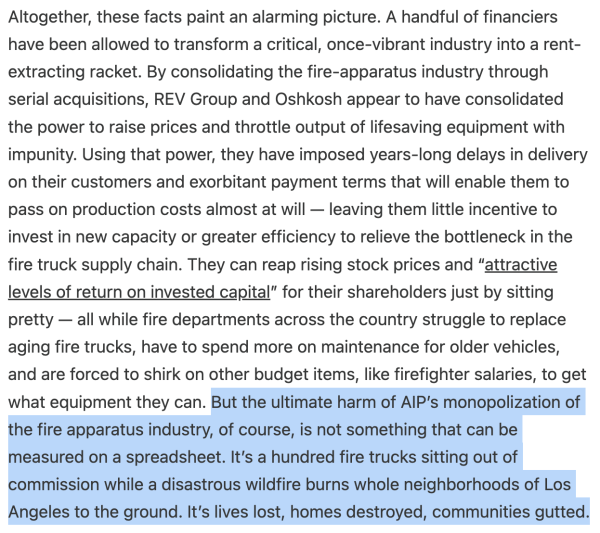OMG. Scratch literally any problem in the US, and you'll find a monopoly underneath. Why were the LA fires so hard to fight? In part because a monopoly has bought the entire fire truck manufacturing industry, doubled the prices of trucks and quadrupled the waiting time for them. 100 of the 180-ish trucks LAFD owns are currently offline. #LAFires
https://www.thebignewsletter.com/p/did-a-private-equity-fire-truck-roll?r=2hk0s&utm_campaign=post&utm_medium=web&showWelcomeOnShare=false
https://www.thebignewsletter.com/p/did-a-private-equity-fire-truck-roll?r=2hk0s&utm_campaign=post&utm_medium=web&showWelcomeOnShare=false
Dieser Beitrag wurde bearbeitet. (3 Monate her)


